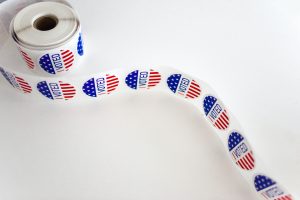Earlier this week, the Supreme Court issued a one-line rejection of an appeal filed by pro-Trump attorneys who’d filed baseless election fraud lawsuits against the state of Michigan and the city of Detroit.
The Supreme Court has declined a request from Trump-allied attorneys to lift sanctions for filing meritless lawsuits challenging the results of the 2020 presidential election.
According to The Hill, the plaintiffs named in the complaint—Sidney Powell and Lin Wood, among others—filed their lawsuit against Michigan state officials and Detroit election officers in November of 2020.
Powell, for instance, had tried arguing that Detroit conducted its election using ballot tabulating software developed by associates of the late Venezuelan dictator Hugo Chavez, which was purportedly weaponized to siphon votes away from Trump.
In an earlier ruling, issued scarcely a month after Powell filed her claim, a Michigan-based judge derided the lawsuit as founded on nothing more than conjecture and empty speculation.
“In fact, this lawsuit seems to be less about achieving the relief Plaintiffs seek—as much of that relief is beyond the power of this Court—and more about the impact of their allegations on People’s faith in the democratic process and their trust in our government,” U.S. District Judge Linda V. Parker wrote.
Parker later ordered sanctions against Powell and other Trump-allied attorneys involved in similar cases, describing the lawsuits as a “historic and profound abuse of the judicial system.”
“Sanctions are required to deter the filing of future frivolous lawsuits designed primarily to spread the narrative that our election processes are rigged and our democratic institutions cannot be trusted,” Parker wrote.

In her 110-page order, Parker directed that Trump attorneys involved in the complaints repay attorneys’ fees accumulated by Michigan state officials, and to take legal education classes.
Parker also referred her decision to licensing authorities in each of the attorneys’ states of practice, ostensibly for “investigation and possible suspension or disbarment.”
The group of lawyers—described by Powell as a Trumpian “Kraken”—appealed Parker’s order to an appeals court, which similarly found that most of the sanctioned attorneys had failed to investigate the merits of their own claims before filing complaints against state and city officials.
Upholding Parker’s ruling, a panel for the U.S. Court of Appeals for the Sixth Circuit noted that the election-rigging allegation had hypothesized “an international ‘collaboration’—with origins in Venezuela, extending to China and Iran, and including state actors in Michigan itself—had succeeded in generating hundreds of thousands of fraudulent votes in Michigan, thereby swinging the state’s electoral votes to Joseph Biden.”
“Other allegations arose from facially unreliable expert reports,” the panel wrote, “still others were simply baseless.”
The appeals court’s decision was then escalated to the Supreme Court for reconsideration.
But, on Tuesday, the justices flatly refused to review the decision, offering no explanation beyond listing the attorneys’ claims in a list of “certiorari denied.”
Sources
Supreme Court allows sanctions against Trump-allied lawyers over 2020 election lawsuit
Supreme Court declines to undo sanctions on pro-Trump 2020 campaign lawyers
Supreme Court urged to keep sanctions for Trump allies Powell, Wood
‘The people have spoken’: Michigan judge rejects lawsuit from disavowed Trump attorney


Join the conversation!